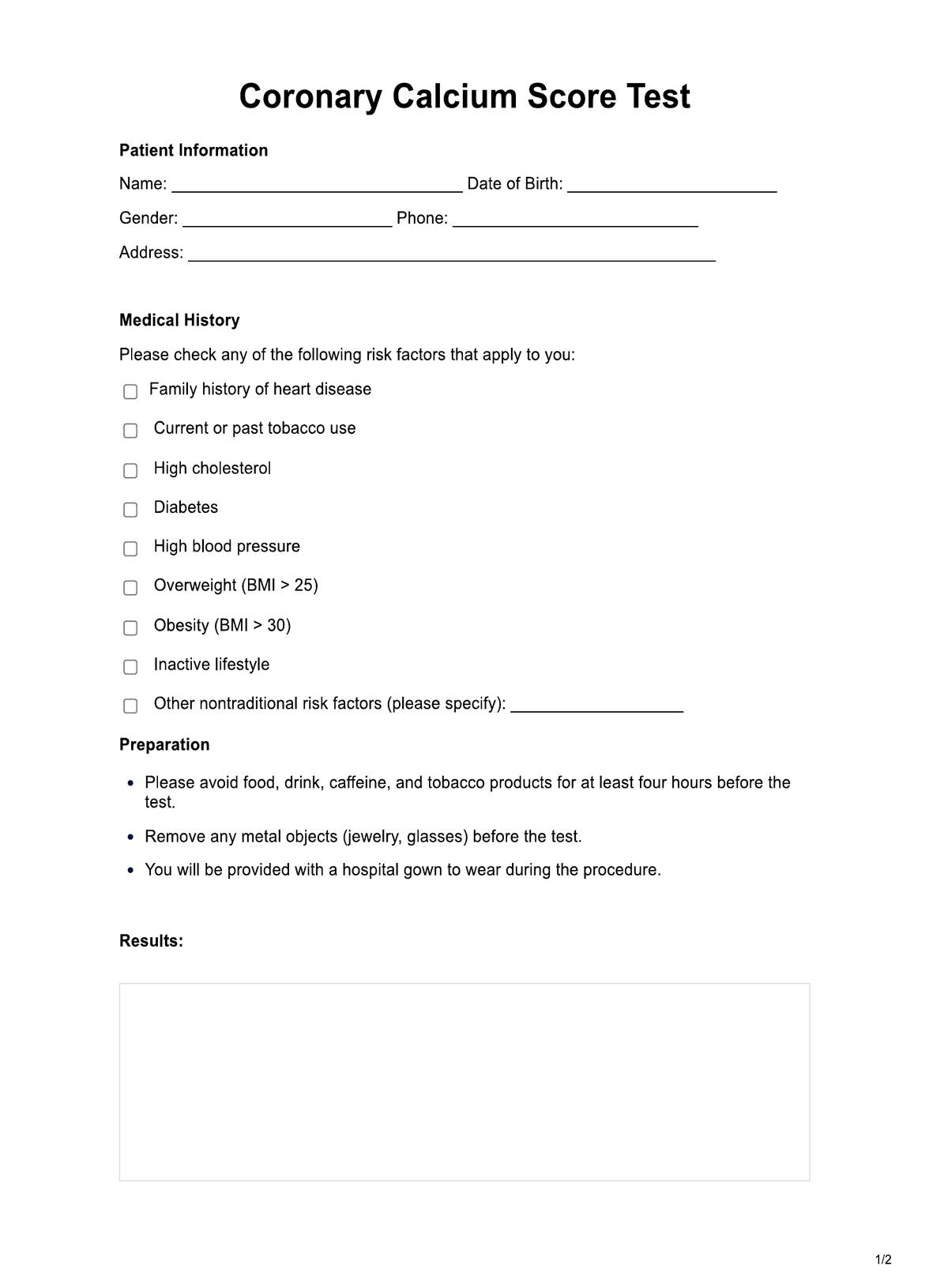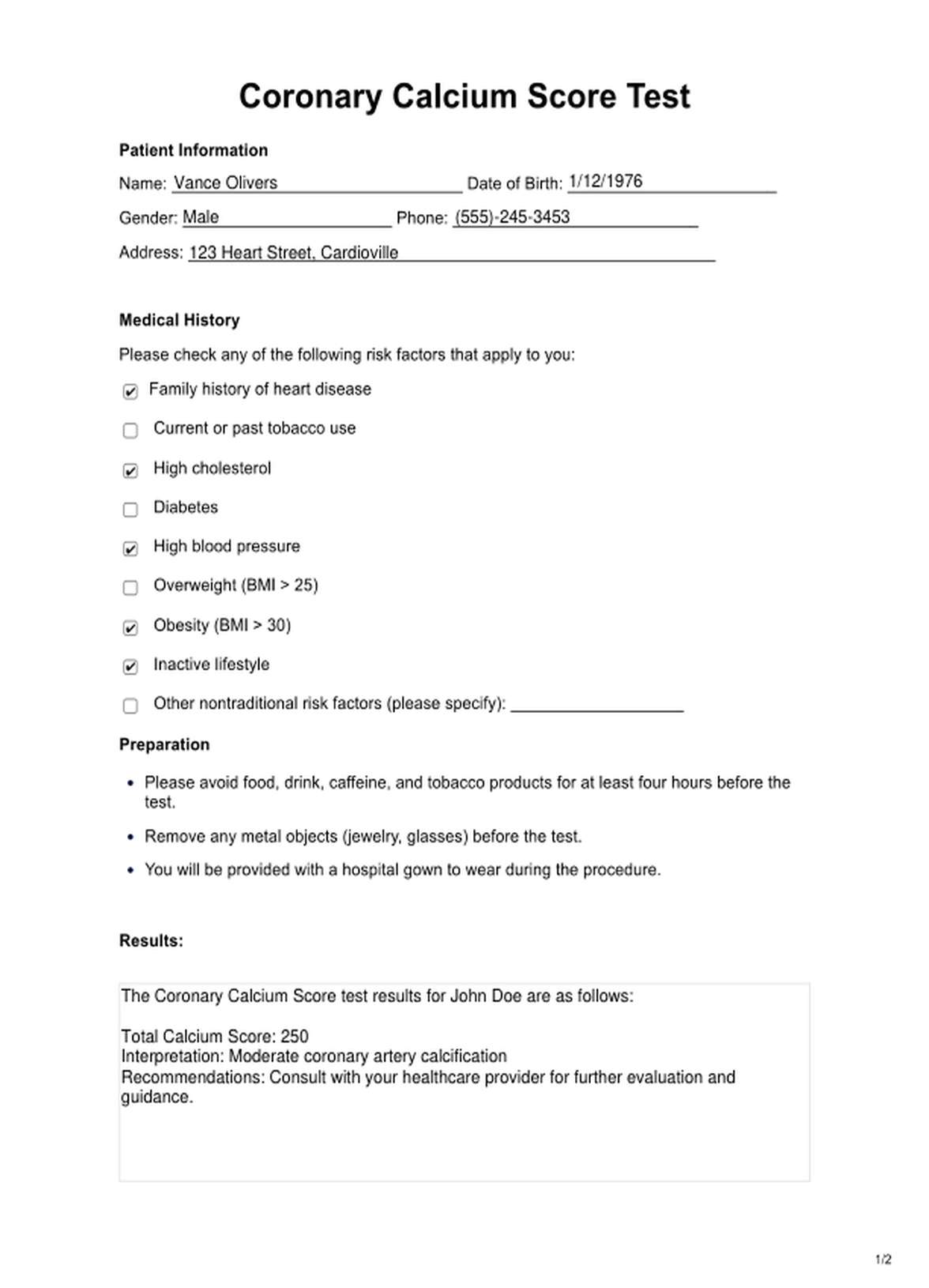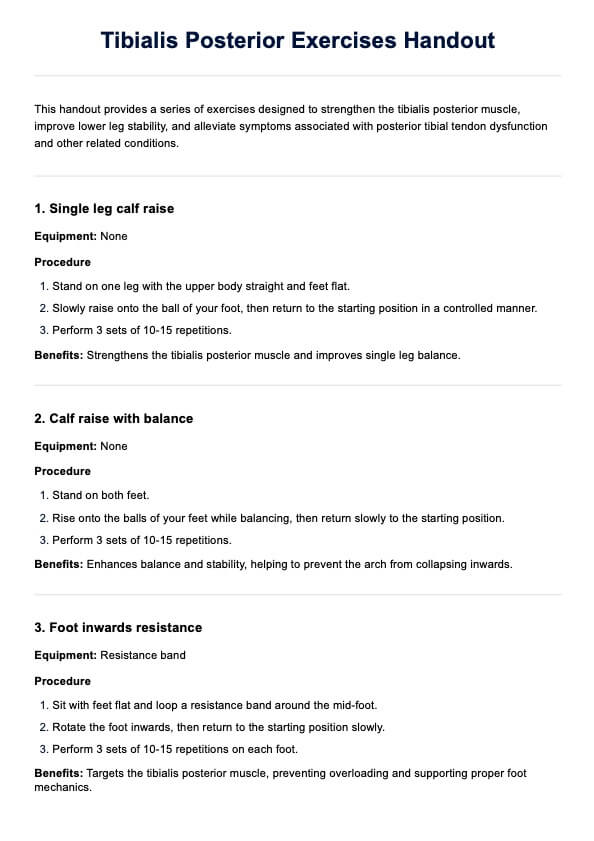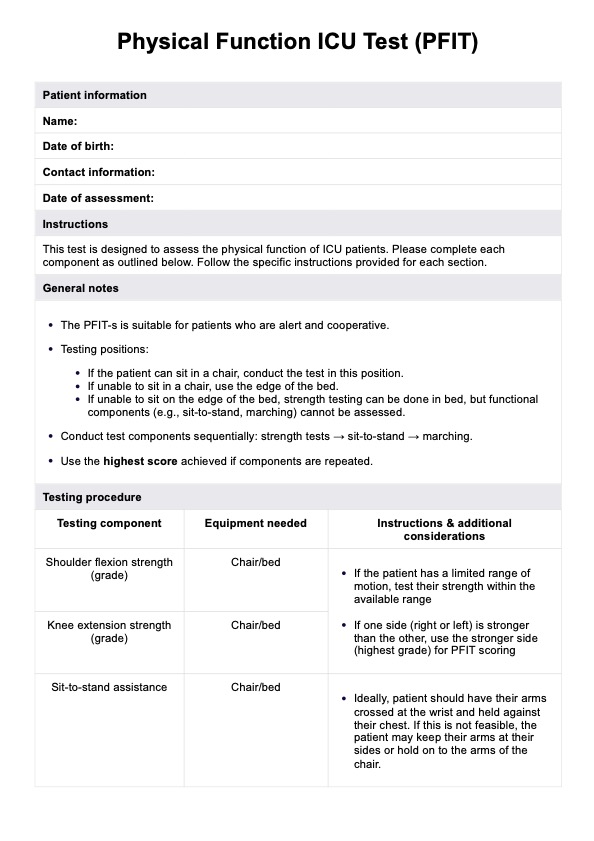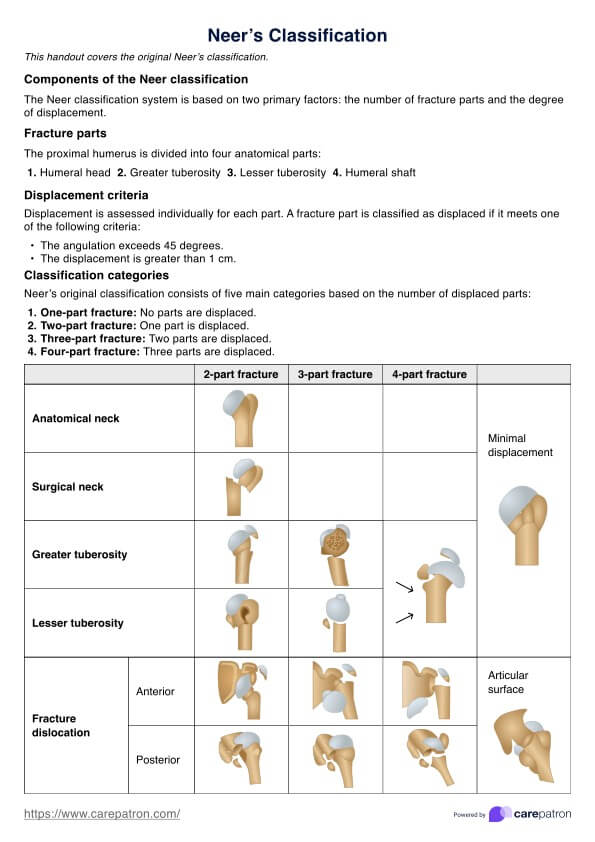Coronary Calcium Score
Learn how Coronary Calcium Score Test detects potential heart risks. Utilize this resource for effective patient assessment and care. Download today!


What is a Coronary Calcium Score Test?
A Coronary Calcium Score Test, commonly known as a Coronary Calcium Score Test, is a vital diagnostic procedure employed to evaluate an individual's susceptibility to coronary artery disease, a primary contributor to heart attacks and strokes. This non-invasive assessment relies on a CT scan to quantify the extent of calcium accumulation within the coronary arteries.
The detection of calcium in these arteries serves as an indicative sign of potential plaque presence, a waxy and fatty substance capable of constricting or obstructing blood vessels. This pathological process leads to atherosclerosis, substantially amplifying the risk of adverse cardiovascular events. By swiftly and accurately identifying these calcifications, healthcare professionals can make informed decisions about prevention and intervention strategies, thus enhancing patient care and cardiovascular health management.
This resource is a comprehensive template designed for healthcare professionals to conduct and document the Coronary Calcium Score Tests effectively. It is a valuable tool for healthcare professionals in efficiently gathering patient data and risk factors, ensuring that patients are adequately prepared for the Coronary Calcium Score Test, and facilitating clear clinical documentation of results and relevant notes for further evaluation and treatment decisions.
Coronary Calcium Score Template
Coronary Calcium Score Example
How Does it Work?
Here are the four steps to effectively use the Printable Coronary Calcium Score Test:
Step 1: Patient Information
Begin by filling in the patient's name, date of birth, gender, address, and phone number. Accurate patient information is crucial for documentation and follow-up.
Step 2: Medical History
In this section, review the patient's medical history to identify risk factors for heart disease. Check the relevant risk factors, including family history of heart disease, tobacco use, high cholesterol, diabetes, high blood pressure, BMI, and any other nontraditional risk factors. If applicable, specify additional risk factors in the provided space.
Step 3: Preparation
Educate the patient about the necessary preparations for the test. Advise them to abstain from food, drink, caffeine, and tobacco products for at least four hours before the test. Instruct the patient to remove metal objects like jewelry and glasses. Ensure they understand they will receive a hospital gown for the procedure.
Step 4: Results
Leave this section blank for recording the patient's test results. A normal score is zero, while an abnormal score may indicate coronary artery disease. Use this space to document the results and any immediate comments or clinical notes.
When Would You Use This Test?
The Coronary Calcium Score Test resource is a valuable tool that can be effectively employed by a range of healthcare practitioners in specific clinical scenarios. This resource finds its most appropriate use when assessing individuals who fall into the intermediate risk category for coronary artery disease.
Healthcare providers, including cardiologists, primary care physicians, and nurse practitioners, can utilize this resource when dealing with patients aged 40 to 70 who exhibit risk factors but do not present any overt symptoms of heart disease. This may include individuals with a family history of heart disease, a past or present history of tobacco use, high cholesterol, diabetes, high blood pressure, an elevated BMI, obesity, or a sedentary lifestyle.
The resource is also useful for those with familial hypercholesterolemia under the age of 40. By deploying this tool in these situations, healthcare practitioners can better assess a patient's risk and make informed decisions regarding preventive measures, such as statin therapy, lifestyle modifications, or further diagnostic tests, ultimately contributing to improved cardiovascular health management.
What do the Results Mean?
The results of a Free Coronary Calcium Score Test are instrumental in understanding an individual's risk of developing coronary artery disease. A critical parameter in this test is the calcium score, which quantifies the extent of calcium deposits in the coronary arteries. A score of zero is considered normal, indicating no detectable calcification and a very low risk of heart attack over the next few years. However, it is essential to remember that a score of zero doesn't eliminate all risk factors, and other considerations like lifestyle, age, and family history must be considered.
Higher scores, on the other hand, suggest an increased risk of coronary artery disease. Scores below 100 indicate mild evidence of plaque, while scores ranging from 100 to 400 signify a moderate amount of evidence. Scores exceeding 400 suggest a strong likelihood of coronary artery disease, with a higher risk of heart attack. These results provide healthcare professionals with valuable insights to make informed decisions about patient care, potentially necessitating interventions like cholesterol management, lifestyle changes, additional diagnostic tests, or more frequent follow-up visits to monitor the patient's condition. Understanding the significance of these results is crucial for assessing and managing cardiovascular health effectively.
Research & Evidence
The Coronary Calcium Score Test, or coronary artery calcium (CAC) score test, was initially developed in the early 1990s primarily to assess the severity of coronary artery disease in individuals already diagnosed with the condition. Over time, research demonstrated that it held promise as a predictive tool for future heart events in asymptomatic individuals, marking a significant shift in its utility.
Research has consistently shown the predictive power of the CAC score test. For instance, the Multi-Ethnic Study of Atherosclerosis (MESA) found that those with a CAC score of zero had a notably low risk of heart attacks or strokes over the following decade. Conversely, individuals with CAC scores of 400 or higher faced a substantial 25% risk of such events.
Moreover, the CAC score test has proven invaluable in identifying high-risk individuals, even without traditional risk factors. Notably, it can help young adults with elevated CAC scores, who might not exhibit conventional risk factors, assess their future heart attack or stroke risk.
The Amrican Heart Association (AHA) and the American College of Cardiology (ACC) endorse the CAC score test. They recommend it for individuals at intermediate risk for heart disease and those with a family history of heart disease or additional risk factors like diabetes or chronic kidney disease. This endorsement underscores the vital role this test plays in guiding treatment decisions and improving cardiovascular health management.
References
- Agatston AS, Janowitz WR, Mintz KA, et al. Quantification of coronary artery calcium using ultrafast computed tomography: a new approach to risk assessment. Circulation. 1990;82(4):1068-1075.
- American Heart Association. 2018 ACC/AHA Guideline on the Management of Blood Cholesterol: A Report of the American College of Cardiology/American Heart Association Task Force on Clinical Practice Guidelines. Circulation. 2019;139(25):e607-e714.
- Kronmal RA, Detrano R, Guerci AD, et al. Coronary artery calcium and risk of coronary heart disease events: insights from the Multi-Ethnic Study of Atherosclerosis (MESA). J Am Coll Cardiol. 2007;50(12):1130-1138.
Commonly asked questions
These tests are typically requested by healthcare providers, such as cardiologists, to assess an individual's risk of heart disease.
�?�
The tests are used when an individual is at intermediate risk for heart disease, helping to make informed treatment decisions.
�?�
These tests involve a quick CT scan that measures calcium buildup in coronary arteries.
�?�
A Coronary Calcium Score Test usually takes about 10 to 15 minutes, with the CT scan itself lasting only a few minutes.
�?�


